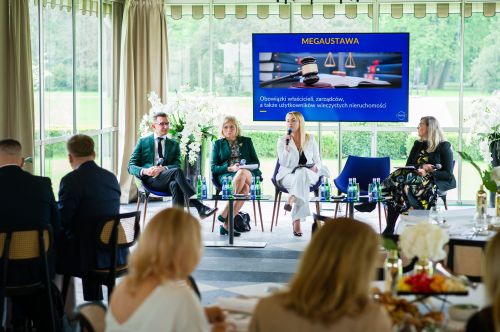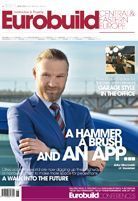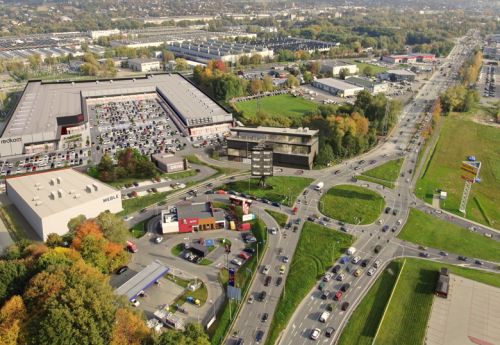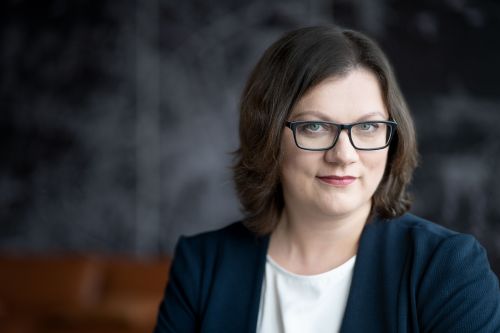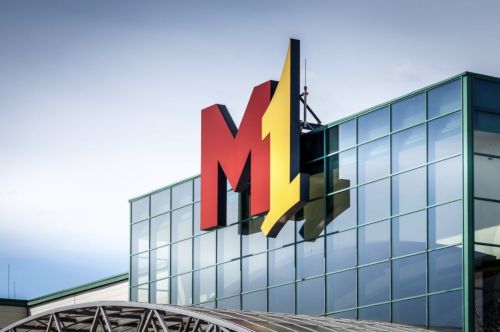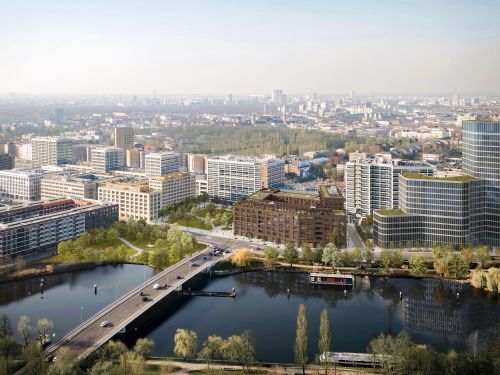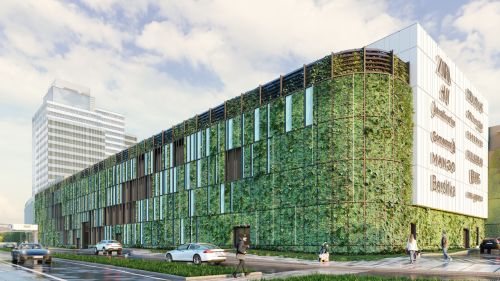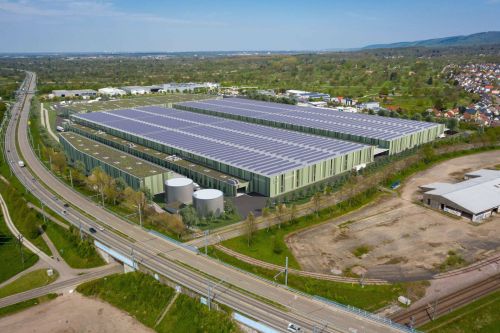Plugged in and ready to play
Office & mixed-use development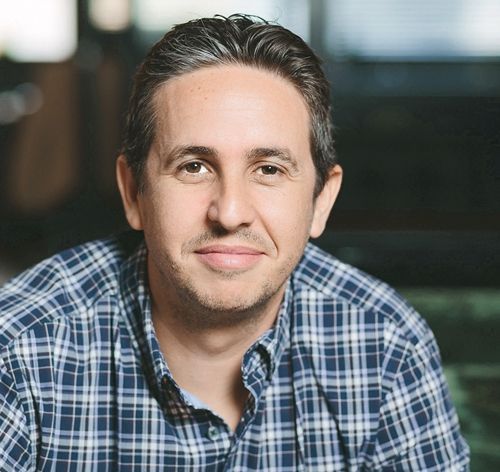
Nathan North, ‘Eurobuild Central & Eastern Europe’: For someone not familiar with your company, how would you describe who you are and what you do?
Dan Zakai, CEO, Mindspace: Mindspace is a global provider of inspiring co-working spaces for teams of all sizes, with locations in Berlin, Hamburg, Munich, Tel Aviv, and now Warsaw. The company was founded in 2014 by myself and my partner Yotam Alroy. We offer hassle-free comfort and productive offices, with stunning lounges and meeting rooms, and fully-equipped kitchens. Though we’re a co-working provider, we provide much more than office space. Mindspace’s global community of over 5,000 entrepreneurs, freelancers, start-ups, investment firms, and innovation teams from leading enterprises – such as Samsung, Barclays Bank, Euronews, M&C Saatchi, and Cheetah Mobile – enjoys weekly networking events, professional meet-ups, and happy hours in a cozy, collaborative atmosphere. Currently we operate four co-working spaces: two in Tel Aviv, one in Berlin and one in Hamburg. These spaces combined span over 14,000 sqm and are home to over 2,500 members. In the course of the next six months, we are scheduled to launch 5 to 8 new spaces around the world – in Warsaw (Hala Koszyki), Israel (Herzliya), Germany (Berlin and Munich) and other countries yet to be announced – that would more than double our business. I expect our spaces to span over 35,000 sqm and to have 6,000 members by the end of the year.
How would you describe a typical Mindspace co-working office? – or is there such a thing as a typical Mindspace workplace?
Every space is different, not only in its unique design, but also in its vibe, which is the outcome of the personalities of the community managers and staff, the blend of people and companies at that specific space, and the culture of the city. For example, at our Berlin space you can feel the productivity and fast-paced nature of our members everywhere you go – as they talk in the elevator, at the networking that takes place during our Happy Hours events and the start-up eco-system events we host. A few hours’ drive from there, at our Hamburg space, the community is especially warm and connected, and takes any opportunity to celebrate holidays, art, and music, with a special affinity for themed parties and cocktails. It would be interesting to see what the Hala Koszyki culture is like… I can assure you it’s going to be fantastic, but we discover the subtleties only when the community has been formed.
In what specific ways are they designed to improve creativity and innovation? And how are they superior to standard offices?
There’s a lot of attention to detail in everything that we do, and especially when it comes to space architecture and design. We provide our members with an optimal work environment for innovation and creativity, which includes, on the one hand, many different lounges and couches, meeting rooms, bars, one-on-one booths, and quiet phone booths – so they can find the sitting arrangement that is right for the specific interaction; and on the other hand, the most advanced technology and facilities to support interactions – like ultra-fast internet, Apple TVs and conferencing tech in the meeting rooms, and the best audio/video equipment in our auditoriums. If you take Warsaw as an example, Mindspace’s approach to design, work and lifestyle aligns perfectly with the vibe of the revitalised Hala Koszyki, demonstrating how classic foundations coupled with inspiring design can bring people together and uplift both people and businesses.
Your website speaks of “members” rather than “tenants” – could you elaborate on this distinction?
The dictionary definition of a “tenant” is a person who occupies land or property rented from a landlord. We don’t feel that way about our members. They are part of a community, they share a large space with others in an atmosphere of collaboration, they are flexible to grow to more offices, move to different offices, use our spaces abroad, and even leave us in a month’s notice if they want to. Members don’t feel like tenants at Mindspace – they feel at home.
Why are you bringing your business to Poland at this point in time? Is this country fertile ground for your services – and how ready is it to receive you?
Mindspace recently raised over USD 15 mln to expand globally, with new spaces opening later this year in Europe and the United States. Warsaw is an energetic market where the forces of business and innovation are driving the city forward at an amazing pace. This creates a need for shared spaces for small businesses and forward-looking enterprises that recruit heavily in Warsaw and deem Warsaw as a hub for both innovation and talent.
How do you choose your locations? And why did you choose Hala Koszyki?
When searching for locations for Mindspace, there is always a combination of factors that are considered. Our prime locations are always in the heart of the city, but we also look for the right vibe. Hala Koszyki is just an awesome place to be – this transformation of an old building, which has been mixed with modern design, is phenomenal. We had been looking around Warsaw for a year and when we saw Hala Koszyki we just fell in love. The high ceilings, the food court, the young people, the activities all around it... In the end, this choice was a bit of a no-brainer.
At what stage is the Mindspace Hala Koszyki project?
The Mindspace offices are still under construction and the fit-out work has just begun. The offices should be ready for our opening in mid-October and will span over three floors and 3,000 sqm. Marketing for the space will begin during the construction phase, and we are already taking enquiries from potential members during this period, so that we will have as many members as possible starting their work at Mindspace on the opening day. It will probably take several months after the opening to fill the space up to its full capacity of 450 members.
Are the services you provide intended to complement the traditional office market? Or rather, to eventually replace standard offices?
Co-working sometimes complements traditional offices as a temporary solution for those waiting or looking for permanent offices. Co-working still represents a small percentage of the office sector, but it is growing on many markets and we are seeing more companies opting for our solutions. In the past we have had to demonstrate the advantages of co-working to landlords of traditional office buildings, but today they are fully aware of these and want to have co-working as a comprehensive solution at their locations. Co-working in the past was basically just a desk with wi-fi, aimed at freelancers who were looking for a place to work. However, preferences have changed. We now provide a high-end working environment, which facilitates out-of-the-box thinking, interaction and a new lifestyle. Once you can provide this on a large scale, it creates a bigger market for co-working. This is the future of work, but it currently co-exists with traditional offices. We believe that as time goes by there will be more shared spaces as a percentage of the office market, and we intend to take a bigger share of this growing market.
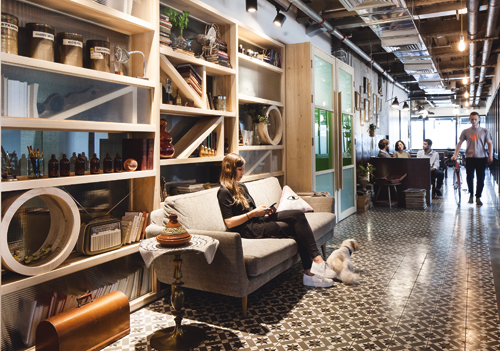
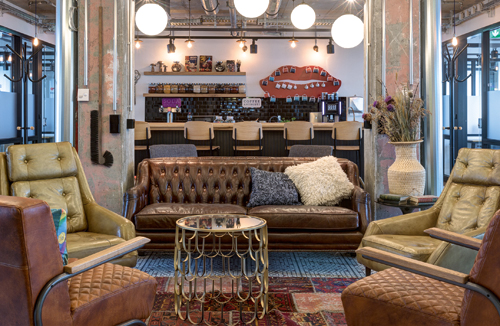
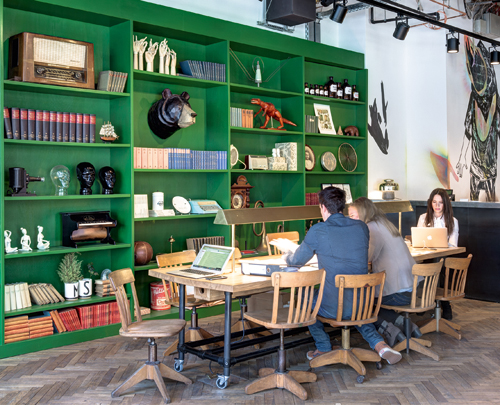
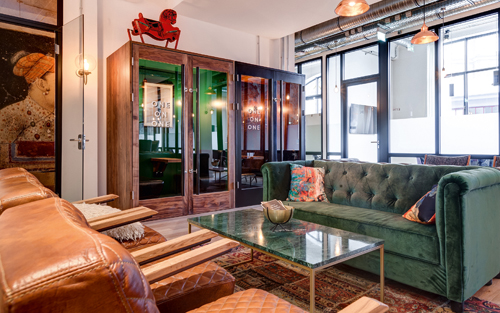
Isn’t one of the main advantages of co-working that it is cheaper than leasing traditional offices?
Co-working can be cheaper – or more expensive, depending on the specific location and the configuration that the customer opts for. Co-working spaces can be cheaper because they are more efficient, removing the hassle of heavy deposits, legal costs, taxes, buying furniture for the office, maintenance and cleaning costs, kitchen supplies, and so on. Everything considered, co-working is usually cheaper than traditional offices. When we started a few years ago, everyone wanted to know how much cheaper we were. But today the big story is the added-value that being at our space brings to our members – and this is harder to quantify. When a large firm works together with start-ups, designers, digital agencies, and consultants, all at the same place and on a daily basis, and has the opportunity to enjoy an interesting event and a drink together – and that’s the added value.
And what exactly do you do to foster these bonds between members?
Well, this doesn’t just happen by coincidence – we employ community managers to run our spaces. They ask our members about their aspirations, what they are looking to achieve – and try to help them to realise their goals. We also hold networking events – and bring experts and opinion leaders for lectures and workshops. And every week there’s our Happy Hour, which usually has a different cool theme each time, where people hang out and get to know one another. It’s really a lot of fun. So we are constantly and actively helping our members connect by building the community at each location and across locations.
How do co-working agreements compare to standard office lease contracts?
What we are offering is a “plug-and-play” concept for real estate. Our membership agreement is a just a few pages long and not nearly as complicated as a lease agreement. Members agree to a package that is priced basically by the space they want to use. They can take more or less space, as they need, every month – we offer full flexibility with no strings attached. Our offices come fully furnished, with full IT support and maintenance, for one lump sum. The notice required is just 30 days, so the deals are far less complicated in comparison to a lease contract. Members know exactly what they are getting and there are no surprises. All the events we hold and the benefits that members enjoy – such as discounts for online services and nearby businesses – are part of this package. In some cases tailored services are available and come with an additional cost; but in the vast majority of cases members stick to the great package we provide.
And how would you briefly sum up the main difference between co-working and traditional offices?
Co-working is the future of work. It’s hard to explain in words the feeling of working at Mindspace to someone who has never visited our spaces. It is not just a shared physical space, but a new way of life, a lifestyle. People come to work, but feel at home. They feel comfortable and cared for. And this is not a trivial thing for a large workplace. Take, for example, our Berlin location, which spans almost 5,000 sqm and accommodates 800 members working alongside each other, networking and sharing experiences together. We provide the beautiful spaces and infrastructure for personal friendships and professional relationships to form – but it is when the members arrive at Mindspace that the magic really happens. That’s why over 90 pct of our members recommend Mindspace to their friends. You should come and see it for yourself…












